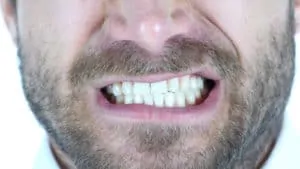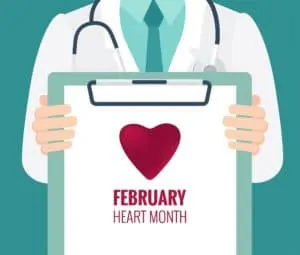
What is Gum Recession?
Gum recession occurs when the gum tissue begins to pull away from teeth, leaving tooth roots exposed and increasing the risk for tooth loss, increased sensitivity, and decay. What’s even worse is that once gums recede, you can’t grow it back. However, your dentist in Asheboro may be able to help with a variety of gum recession treatments. It’s best to talk with your dentist to find out the best way to fix receding gums.
Gum Recession Treatment
Effect treatment of receding gums depends on the root cause and overall oral health. Some of the most common treatment options are:
- Scaling & Root Planing: This type of gum recession treatment is usually the first one suggested by dentists. It’s similar to a dental cleaning, but instead of focusing on the surfaces of teeth only, your dental team will clean up under the gum line to remove plaque and tartar from the roots of your teeth. This procedure is usually done with a numbing anesthetic for increased comfort.
- Antibiotics: Following a scaling root planing, which also helps smooth out roots to make it difficult for bacteria to cling to them, your dentist may also choose to use a temporary antibiotic to kill off any bacteria that may still be lingering around.
- Surgical Techniques: Advancements in dental technology have included several updated surgical techniques to help combat gum recession. To find out if gum recession surgery is right for you, and to determine which one would be most effective, schedule a visit with your dentist in Asheboro.
What Causes Receding Gums?
There’s not one singular underlying cause behind gum recession. Each individual is different, and your cause may be different than someone else’s. Some of the causes of gum recession are:
- Brushing Your Teeth Too Hard
- Trauma
Preventing Gum Recession
Gum recession is an incredibly common dental concern that we encounter every day. While it may seem like a minor thing, receding gums can lead to some serious complications and even become pretty painful if left untreated. There are ways you can help prevent your gums from receding such as:
- Brushing properly using a soft-bristled toothbrush. You should hold your toothbrush at a 45-degree angle and move it around in small, gentle circles on each surface of each tooth.
- Practicing a good oral hygiene routine of brushing and flossing every day.
- Seeing your dentist in Asheboro at least every six months.
If you notice any of the common signs of gum recession, including swollen, red gums, chronic bad breath, pain along the gum line, exposed tooth roots and the accompanying sensitivity, or visibility shrinking gums, schedule a dental appointment today.




 As we all know, recently everyone’s life has quickly changed, and we’re all experiencing a temporary new normal. But with change and uncertainty also comes quite a bit of stress. Your dentist in Asheboro understands, and we’re with you. While we’re sure that trying your best to avoid getting stressed out is probably high on your priority list, taking care of your oral health may not be. That’s where we come in. Because, in fact, minimizing stress can also help protect your mouth.
As we all know, recently everyone’s life has quickly changed, and we’re all experiencing a temporary new normal. But with change and uncertainty also comes quite a bit of stress. Your dentist in Asheboro understands, and we’re with you. While we’re sure that trying your best to avoid getting stressed out is probably high on your priority list, taking care of your oral health may not be. That’s where we come in. Because, in fact, minimizing stress can also help protect your mouth. Nobody wants to experience a dental emergency, and that may be more true now than ever before thanks to all of the confusion and uncertainty surrounding COVID-19 and dental care. Don’t worry, your dentist in
Nobody wants to experience a dental emergency, and that may be more true now than ever before thanks to all of the confusion and uncertainty surrounding COVID-19 and dental care. Don’t worry, your dentist in  If you’ve ever had a dental procedure such as a filling or root canal, chances are you’ve experienced the odd sensation of novocaine numbness. While novocaine can help you not feel anything during treatment, the side effects can be annoying. But just how long do you have to deal with not being able to feel your face? Your dentist in
If you’ve ever had a dental procedure such as a filling or root canal, chances are you’ve experienced the odd sensation of novocaine numbness. While novocaine can help you not feel anything during treatment, the side effects can be annoying. But just how long do you have to deal with not being able to feel your face? Your dentist in 







